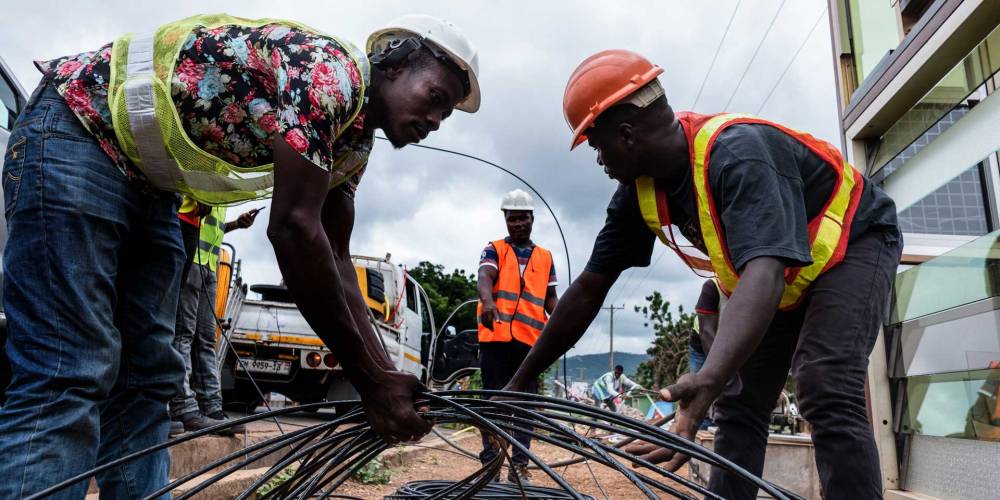
Facebook To Fund ‘extensive’ Network Infrastructure Project In Africa
Facebook to fund ‘extensive’ network infrastructure project in Africa
Liquid Intelligent Technologies, Africa's largest fiber company, announced this week that it would partner with Facebook to build a "extensive" fiber network spanning over 2,000 kilometers (1,243 miles) across the continent.
The network will contribute to the development of a digital corridor connecting the Atlantic Ocean to East Africa and the Indian Ocean via the Congo Rainforest, the world's second largest rainforest after the Amazon.
Liquid Technologies, which operates in more than 20 African countries, has been working on the digital corridor for more than two years, according to the company. This corridor has now reached the Democratic Republic of Congo, connecting the country to its neighbors, which include Angola, Congo Brazzaville, Rwanda, Tanzania, Uganda, and Zambia.
According to a statement on Liquid's website, the project is one of the company's most "extensive and difficult" builds. The network's construction will require the efforts of at least 5,000 members of local communities.
“We recognize that deploying fiber in this region is challenging, but it is critical for expanding broadband access to underserved areas,” Ibrahima Ba, head of Network Investments at Facebook's Emerging Markets unit, said. “We look forward to seeing how our fiber build contributes to increasing the availability and affordability of high-quality internet in the Democratic Republic of Congo.”
The move establishes Facebook as one of the largest investors in African fiber networks and is the latest in a series of efforts by the company to connect Africa's staggering number of disconnected citizens.
According to a 2019 report by the International Telecommunications Union (ITU), Sub-Saharan Africa has the highest proportion of people without access to the internet.
The long haul and metro fiber networks are expected to improve internet access for more than 30 million disconnected Africans and contribute to Central Africa's growing demand for regional connectivity.
Facebook Effort in Closing Africa's Enormous Connectivity Gap
Facebook has been attempting to close Africa's enormous connectivity gap, but not all efforts have been successful. In 2016, following the failure of a satellite to beam internet access to the continent, the company shifted to a fiber-centric strategy.
A similar attempt by Alphabet, Google's parent company, to use balloons to bring connectivity to remote and underserved areas of Africa also failed. The Loon project, which failed to find a financially viable business model, was shut down by the US technology giant.
Facebook then began rolling out its Free Basics initiative to dozens of African businesses, and last year revealed 2Africa – a massive subsea cable that will “connect 23 countries in Africa, the Middle East, and Europe.”
While Facebook will fund the DRC fibre build and assist with network planning, Liquid will build and operate the infrastructure. After that, the latter will sell wholesale services to ISPs and mobile network operators.
The network will eventually connect to and expand the reach of 2Africa, stretching from central Congo to the eastern border with Rwanda. Meanwhile, the subsea cable is expected to land along both the East and West African coasts by 2024.
“Liquid Technologies and Facebook share a mission of providing affordable infrastructure to close connectivity gaps, and we believe our collaboration will have a significant impact on internet accessibility across the region,” Liquid said in a statement.

